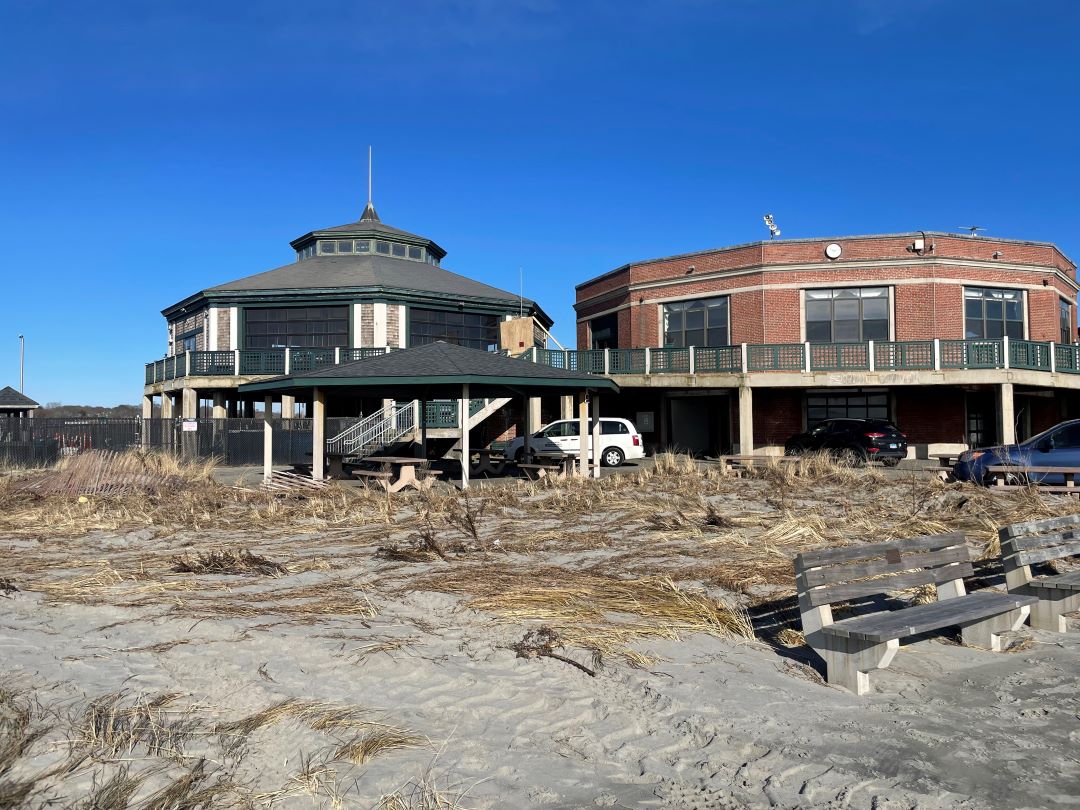Consultant: Carbon Pricing Not Enough to Stop R.I. Emissions
September 21, 2020
PROVIDENCE — Carbon pricing may come to pass in Rhode Island, but even if such an initiative was enacted the state’s emissions problem would be far from solved.
Consultants delivering a recent status report for a Rhode Island carbon-pricing study noted that a fee on fossil fuels was once considered the solution to ending carbon pollution. But the scope and severity of the climate crisis, along with a shrinking period of time to act, means that a carbon tax should be considered as one of several initiatives employed to curtail greenhouse gases, according to the Massachusetts-based firm.
“In recent years, the broader recognition in the academic and climate-modeling community is that carbon taxes need to be considered as part of a broader portfolio of strategies and not just act on its own,” said Michael Walsh, senior associate with The Cadmus Group, one of the consulting firms preparing the study.
Emissions-reduction goals have become much more ambitious, requiring in many cases net-zero emissions by 2050, Walsh said. So, “you need a whole suite of policies to build off of and interact with each other to achieve those targets.”
Rhode Island generates the second-lowest emissions per capita in the country, according to the U.S. Energy Information Administration. But even with a handful of concurrent initiatives in place, like drawing 100 percent of its electricity from renewable energy, the state won’t reach its goal of reducing emissions by 80 percent by 2050.
“A carbon price alone would not be adequate to achieve Rhode Island’s decarbonization goals,” said Cadmus analyst Farrah Andersen during the Sept. 18 online meeting.
The carbon-pricing report, which is expected to be released in November, assumes emission reductions are underway from Rhode Island’s switch to an electric-powered heating sector, as well as investments from the multi-state cap-and-trade programs, the Transportation & Climate Initiative and the Regional Greenhouse Gas Initiative (RGGI).
The report will show how various prices placed on each ton of carbon dioxide emitted from fossil-fuel combustion can influence a reduction in greenhouse gases. The higher the fee, the more revenue collected. That money can be used to motivate consumers to take low-carbon actions, such as using rebates to buy electric vehicles and heat pumps. The money can also make direct infrastructure investments, like replacing the state’s fleet of 240 diesel buses or offering energy-efficiency improvements for homes and businesses.
The report will also address obstacles facing a carbon-fee program, such as objections from business and political groups. Opponents frequently label the fee “a regressive tax,” meaning that it depletes a higher percentage of income for low- and moderate-income consumers than it does for affluent consumers. The report will address how incentives and rebates can replace the added cost for fuels or even produce a net gain for low- and moderate-income earners.
The report will also look at the benefits of various policy options, such as spending $12 million annually to make state public transit free.
Preliminary findings show that frontline groups and other stakeholders are skeptical that revenue raised through a carbon fee will be spent equitably and openly. There is also a fear that emitters will simply pass their pollution costs on to consumers. Environmental justice groups such as Direct Action for Rights and Equality and the city of Providence’s Racial & Environmental Justice Committee of Providence said they preferred spending on specific local projects instead of statewide incentives.
“The needs are beyond decarbonization,” said Cadmus’ Anderson. “There’s community investment needs that might be community priorities that are more about, from an environmental perspective, a green living space, healthily living, things like this that are about how to be mindful in the carbon-pricing policy design.”
The report will look at six scenarios with various carbon prices, infrastructure spending, and rebates.
One model is based on legislation offered by the Brown University-funded Energize Rhode Island Coalition. The price per metric ton of carbon dioxide starts at $15 and increases to $103 by 2050. A lower-priced model based on the RGGI starts at a price of $5 per metric ton. A national model offered in legislation sponsored by Sen. Sheldon Whitehouse, D-R.I., reaches about $300 per ton by 2050. For reference, each $5 increase adds about 2 percent to the price of gasoline and about 6 percent to the price of natural gas.
The Whitehouse model offers the greatest reduction in emissions by 2050, a decline of about 71 percent. But in its report, Cadmus explores two primary pricing scenarios: the Energize Rhode Island model, which cuts emissions about 61 percent, and the RGGI model, which reduce emissions by about 57 percent.
Suggested uses for the carbon-fee revenue include rebates for electric vehicle purchases, free transit service, electric bus purchases, expanded bicycle transit, charging-station rebates, heat-pump rebates, and weatherization programs.
All of the scenarios assume that a carbon-fee program will be part of a regional plan adopted by neighboring states.
The final report will include economic and health impacts of a carbon-fee system. But so far, the research finds modest economic benefits from investing and distributing some $100 million annually in revenue from carbon fees.
“I don’t want anyone to come away thinking that these policies are likely to either cause the state’s economy to boom or cause the state’s economy to crash. The overall effects are likely to be small,” said Jesse Way, a senior analyst with Cadmus.
The report will not recommend one model for Rhode Island to adopt, but offer options that serve as a reference for policy and perhaps legislative initiatives.
After several carbon-pricing bills died in the General Assembly, the Senate authorized the carbon-pricing study in 2017. Settlement money from the Volkswagen emissions scandal awarded to the state will contribute up to $250,000 toward the report’s cost. After a two-year delay, the report was commissioned last year.
Comments on the proposal can be submitted through Oct. 1 via email to Chris Kearns of the Rhode Island Office of Energy Resources at [email protected], or to Elizabeth Stone at [email protected].




I fear that if Trump remains in power any further efforts by RI or even New England, may make some feel good but it will be like spitting into the wind
In the last paragraph, you mention that comments on the proposal can be submitted through Oct 1. That leaves me confused. I thought, from this article, that the report was due out in November. What is there to submit comments on now?
The Office of Energy Resources and its consultants said they are willing to answer questions and receive input for the study. — Frank Carini, ecoRI News editor